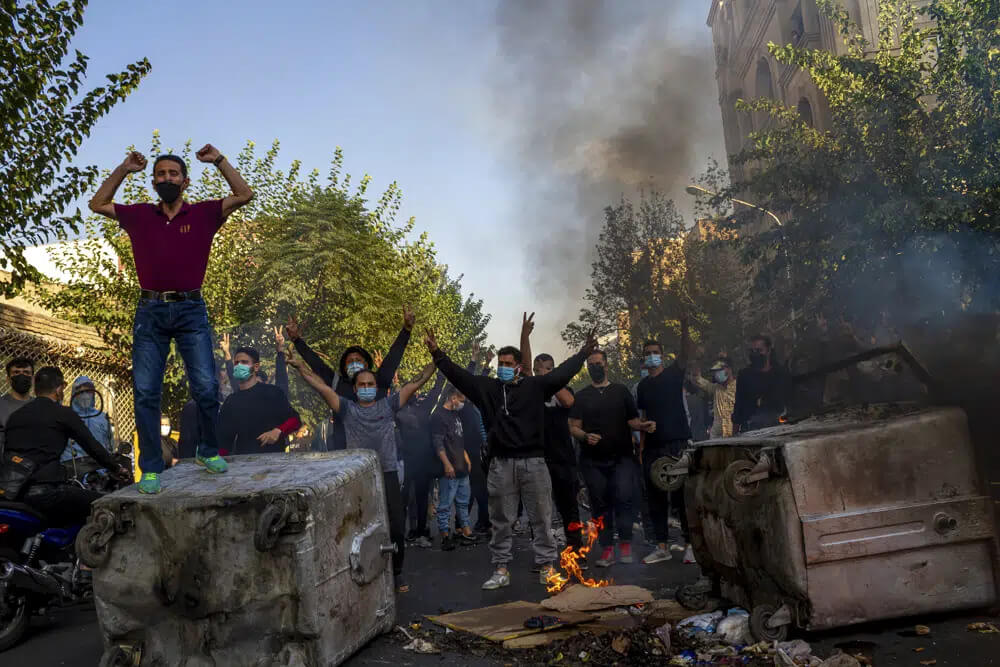Iran has reportedly suspended normalisation talks with Saudi Arabia, claiming that the Gulf country has been supporting anti-regime protesters and inciting violence across Iran.
“The Iranian-Saudi negotiations have stalled, and this will have a negative impact on the region,” said Iraqi lawmaker Amer Al Fayez, a member of the Iraqi parliament’s Foreign Relations Committee. Baghdad has been mediating negotiations between Riyadh and Tehran to diffuse tensions.
According to the Associated Press, the talks had been scheduled for a sixth round to be hosted in Baghdad in the coming days. However, Iran has refused to meet Saudi officials unless they stop supporting the protests.
FM @Amirabdolahian : We believe that the Baghdad meeting can be a big step to overcome the problems.
— Government of the Islamic Republic of Iran (@Iran_GOV) December 19, 2022
Our talks with Saudi Arabia will continue.
It is the Saudi side that should decide to behave constructively. pic.twitter.com/eTUpTdbbkK
Iran’s mission to the United Nations announced on Monday that the talks had “ceased” for a “variety of reasons” and “it might be worth asking Saudi Arabia about them.”
Iranian Foreign Minister Hossein Amirabdollahian said on Tuesday that Tehran would like talks to continue and blamed Riyadh for the disruption. “It is the Saudi side that should decide to behave constructively,” he noted.
Talks between the two rivals began in April last year in Baghdad as Riyadh and Tehran expressed interest in pursuing negotiations to resolve their longstanding differences. Although talks continued for a year, they broke down in March after Iran suspended talks without citing any particular reason.
Negotiations once again resumed in April for a fifth round in Baghdad, with the two rivals agreeing to hold a sixth round of talks.
Talks between #Iran & #SaudiArabia have come to a halt, with Tehran refusing to meet with Riyadh at Baghdad conference amid protests. Up until recently, Tehran had been hyping these talks for PR purposes with Riyadh more downcast. https://t.co/ZMjN3KzMI9
— Jason Brodsky (@JasonMBrodsky) December 19, 2022
Newly elected Iraqi Prime Minister Mohammed Shia Al Sudani said last month that Baghdad would continue to facilitate dialogue between Riyadh and Tehran, with the two sides asking Iraq to continue mediating.
However, according to AP, Iranian officials told Sudani during a visit to Tehran in November that they would not meet with Saudi officials because Riyadh is supporting protests in Iran and funding anti-Iran media organisations to report on the unrest.
Last month, Iranian Intelligence Minister Esmail Khatib warned Saudi Arabia against meddling in Iran’s internal affairs, saying it can unleash chaos in the Gulf country. Khatib stressed that Tehran would not hesitate to reciprocate against Riyadh by destroying its palaces.
Iranian media didn’t mention anything about PM Sudani mentioning Iran-Saudi talks during his visit to Tehran last month.
— Fereshteh Sadeghi فرشته صادقی (@fresh_sadegh) December 19, 2022
But now AP reports he specifically discussed this subject with Iranians. https://t.co/tiEyjLEXbZ
Anti-regime protests erupted across Iran in mid-September in the wake of the death of 22-year-old Kurdish woman Mahsa Amini, who was arrested by Iran’s morality police for not wearing her hijab correctly. Amini was brutally tortured and died while receiving treatment at an intensive care unit of the Kasra hospital in Tehran.
What initially began as protests demanding an end to mandatory hijab laws have gradually morphed into a nationwide movement calling for the end of the theocracy in Iran. Protests have spread rapidly across the nation and galvanised school and university students, including girls, labour unions, and prisoners.
Nationwide demonstrations have continued to spread for almost three months. According to an estimate, at least 503 protesters, including 69 children and 32 women, have been killed in clashes with security forces. Iran has executed two detained protesters and have 39 others are at imminent risk of facing the death penalty.
Iran and Saudi Arabia have had major issues with one another for a long time and tensions spiralled out of control when the Saudi embassy in Tehran was attacked by Iranian mobs in 2016 over Saudi Arabia’s execution of a prominent Shia cleric. Following the attacks, the Kingdom officially broke diplomatic ties with the Islamic Republic.
Since then, the two sides have clashed numerous times, especially in war-torn Yemen. Saudi Arabia has led an international coalition in the country that has been launching airstrikes against the Iran-backed Houthi rebels. The Houthis have also targeted Saudi energy infrastructure, including several Saudi Aramco facilities.

